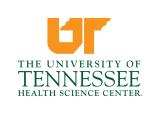CHIPS Professional Development - The Observer Role: Discussion with Dr. Kyle Johnson
Dr. Kyle Johnson discusses his publication regarding the observer role in simulation-based education. This article was selected by the Society for Simulation in Healthcare as one of the top “Articles of Influence” for 2020.
Article Citation: Johnson, B. K. (2019). Simulation Observers Learn the Same as Participants: The Evidence. Clinical Simulation in Nursing, 33, 26-34, article.
(This article is part of the holdings of the UTHSC Library)
Category
Format
Credits
Trauma Informed Primary Care

Most research on trauma and trauma informed care has focused on adolescents, or mental health in adults usually examining a single type of abuse (most frequently sexual abuse).
Category
Format
- Conference / meeting
Credits
- 1.00 ANCC
Preceptor Training
This is a 2 hour 15 minute course divided into 10-20 minute segments designed for the busy adult nursing learner. There are 4 modules in this segment of the course: Core Principles, Learning Styles, Communication Techniques, and Planning/Evaluation. Production Team:
Category
Format
- Self-study / Enduring
Credits
- 2.25 ANCC
CHIPS Professional Development - Leveraging Everyday Curriculum and Assessment to Drive Programs of Educational Research for Health Professionals

Dr. Yoon Soo Park is Associate Professor at Harvard Medical School and the inaugural Director of Health Professions Education Research at the Massachusetts General Hospital. His research agendas have focused on assessment methods in health professions education, advancing the preparation of learners in clinical reasoning and measurement of competencies through validity studies. Park served as Chair, Research in Medical Education for the Association of American Medical Colleges (AAMC) and was immediate-past Vice President for the American Educational Research Association (AERA).
Dr. Park discusses how everyday educational activities can be leveraged to design and implement educational research by faculty in health professions. He offers examples from simulation and observational assessments which are commonly used across health professions.
Category
Format
Credits
Motivational Interviewing
Motivational Interviewing Certification ProgramTraining in motivational interviewing (MI) is the cornerstone of all our training and certification programs for non-clinical and clinical healthcare workers seeking to deliver more patient-centered and effective care.
Category
Format
- Self-study / Enduring
Credits
Motivational Interviewing for Patients with Vaccine Hesitancy
Category
Format
- Self-study / Enduring
Credits
- 0.75 ANCC
- 0.00 Attendance
Remote Patient Monitoring
This program includes two sessions that will explore best practices in remote patient monitoring and billing for the services.
Category
Format
- Self-study / Enduring
Credits
Cardiac Sports Clearance
This presentation is one of presentations from the 2022
Category
Format
- Self-study / Enduring
Credits
- 0.25 ANCC
Lions and Tigers and Eyes Oh My!
This presentation is one of presentations from the 2022
Category
Format
- Self-study / Enduring
Credits
- 0.25 ANCC
3rd Annual Opioid Conference

"Serving Families Affected By Opioid Use Disorder"
Category
Format
- Self-study / Enduring
Credits
- 6.50 AMA PRA Category 1 Credit™
- 6.50 ANCC
- 6.50 Attendance

 Facebook
Facebook Twitter
Twitter LinkedIn
LinkedIn Forward
Forward